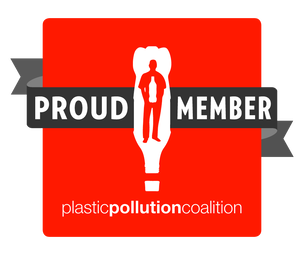|
AWDF together with the Fair Earth Foundation are offering a programme of free workshops at all levels to students of all ages, raising awareness of plastic pollution and its impact on the marine environment, on conservation threats and issues in general - Project:Plastic. We want to involve as many people as possible to make a difference - encouraging individual students through their families or the school through its community of students, parents and teachers to become changemakers.
Plastic Pollution Coalition We are proud to have been recognised for our contributions in the fight against plastic pollution and accepted as an official member of the Plastic Pollution Coalition. The Plastic Pollution Coalition is a growing global alliance of more than 750 organisations, businesses, and thought leaders in 60 countries working toward a world free of plastic pollution and its toxic impact on humans, animals, waterways, the ocean, and the environment. What can you do? 1. You can help us reach 1,000,000 signatories to contribute to the Earth Day petition fighting for a global ban on single use plastics 2. You can carry out a plastic audit on your family home or in your school/college and you can become Plastic Neutral through a combination of changing the way they you plastic and funding the Plastic Bank to pay plastic rubbish collectors in the developing world to collect plastic for recycling (so solving the real problem at source). You can issue certificates and the sums of money involved are quite nominal. 3. You can actively become Earth Angels, adopt your own project and fundraise to help make it happen. Our key focus this year is to set up a project in Sao Tome, West Africa. The project will look at community development, pollution and it is a major hub for Humpback Whales. Whichever project is chosen to be supported we will organise a whole raft of school benefits be it visits, newsletters or correspondence. Also with the Humpback Project we would like to incorporate a tagging programme, with schools being able to 'follow' their whale by satellite link. We would back this up with school visits introducing the importance of the research, the technologies, methodologies and of course the conclusions drawn from any resultant information. |

